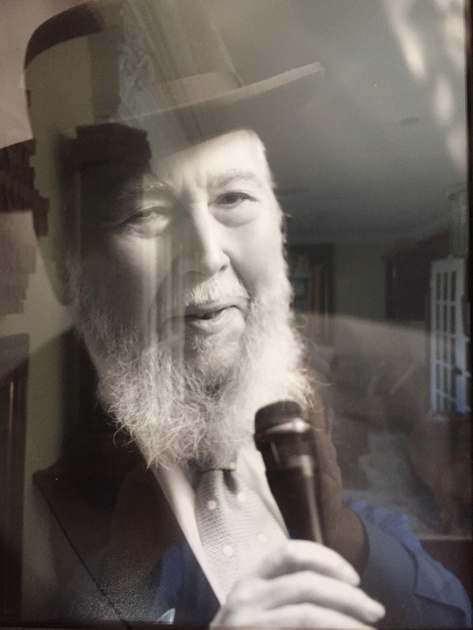
Eruvin 20
וּמַאי קָא מַשְׁמַע לַן — דְּלָא אָתוּ רַבִּים וּמְבַטְּלִי מְחִיצְתָּא, הָא אֲמַר רַבִּי אֶלְעָזָר חֲדָא זִימְנָא!
The Gemara asks: And what is he teaching us by this statement, that the passage of many people does not come and negate the effectiveness of a partition? But Rabbi Elazar stated this idea once before.
דִּתְנַן, רַבִּי יְהוּדָה אוֹמֵר: אִם הָיְתָה דֶּרֶךְ רְשׁוּת הָרַבִּים מַפְסַקְתָּן — יְסַלְּקֶנָּה לִצְדָדִין, וַחֲכָמִים אוֹמְרִים: אֵינוֹ צָרִיךְ. רַבִּי יוֹחָנָן וְרַבִּי אֶלְעָזָר דְּאָמְרִי תַּרְוַויְיהוּ: כָּאן הוֹדִיעֲךָ כֹּחָן שֶׁל מְחִיצּוֹת.
for Video Shiur click here to listen: Psychology of the DAF Eruvin 20
As we learned in a mishna: Rabbi Yehuda says the following with regard to the upright boards surrounding a well: If the path of the public domain passes through the area of the wells and the posts and obstructs them, he must divert it to the sides, or else the partition is invalid. And the Rabbis say: He need not divert the path of the public domain, for even if many people pass through there, the partition is valid. With regard to this mishna, Rabbi Yoḥanan and Rabbi Elazar both said: Here, the Rabbis informed you of the strength of partitions. Therefore, we see that Rabbi Elazar already expressed his opinion that the validity of a partition is not canceled by the passage of many people through it.
Here we find a disagreement between Rabbi Yehuda and the Sages. The sages hold that once a boundary is set, even if public foot traffic passes through it, the boundary remains valid. Rabbi Yehuda holds that the boundary must be moved aside, and accommodate the foot traffic.
I wonder if this idea of Rabbi Yehuda, that the general welfare takes precedence over individual boundaries is also expressed in other ways in Rabbi Yehuda’s halakhic rulings. For example we find him taking an interesting position in regard to Torah study, both related to public welfare and public sorrow. Let us look at these other rulings from Rabbi Yehuda:
Kesubos 17a
תנו רבנן מבטלין תלמוד תורה להוצאת המת ולהכנסת כלה אמרו עליו על רבי יהודה ברבי אלעאי שהיה מבטל תלמוד תורה להוצאת המת ולהכנסת כלה במה דברים אמורים כשאין עמו כל צרכו אבל יש עמו כל צרכו אין מבטלין
The Sages taught: One suspends the study of Torah to attend the removal of a corpse for burial and to attend the entry of a bride into the wedding canopy. The Sages said about Rabbi Yehuda, son of Rabbi Elai, that he would suspend the study of Torah to attend the removal of a corpse for burial and to attend the entry of a bride into the wedding canopy. In what case is this statement said? In a case where there are not enough people with him, i.e., accompanying the corpse, to satisfy all his needs, i.e., to appropriately honor him. However, if there are enough people with him to satisfy all his needs, one does not suspend Torah study.
Kiddushin 29a
רבי יהודה אומר כל שאינו מלמד את בנו אומנות מלמדו ליסטות ליסטות ס"ד אלא כאילו מלמדו ליסטות:
Rabbi Yehuda says: Any father who does not teach his son a trade teaches him banditry [listut]. The Gemara expresses surprise at this statement: Can it enter your mind that he actually teaches him banditry? Rather, the baraita means that it is as though he teaches him banditry. Since the son has no profession with which to support himself, he is likely to turn to theft for a livelihood.
So for Rabbi Yehuda, though individual boundaries are important, the public welfare and interests take precedence, halakhically and philosophically.
for Video Shiur click here to listen: Psychology of the DAF Eruvin 20
Translations Courtesy of Sefaria
Photo Abba Mari Rav Chaim Feuerman, Ed.D. ZT"L Leiyluy Nishmaso
Translations Courtesy of Sefaria, except when, sometimes, I disagree with the translation ![]()
Do you like what you see? Please subscribe and also forward any articles you enjoy to your friends, (enemies too, why not?)
 Previous
Previous

